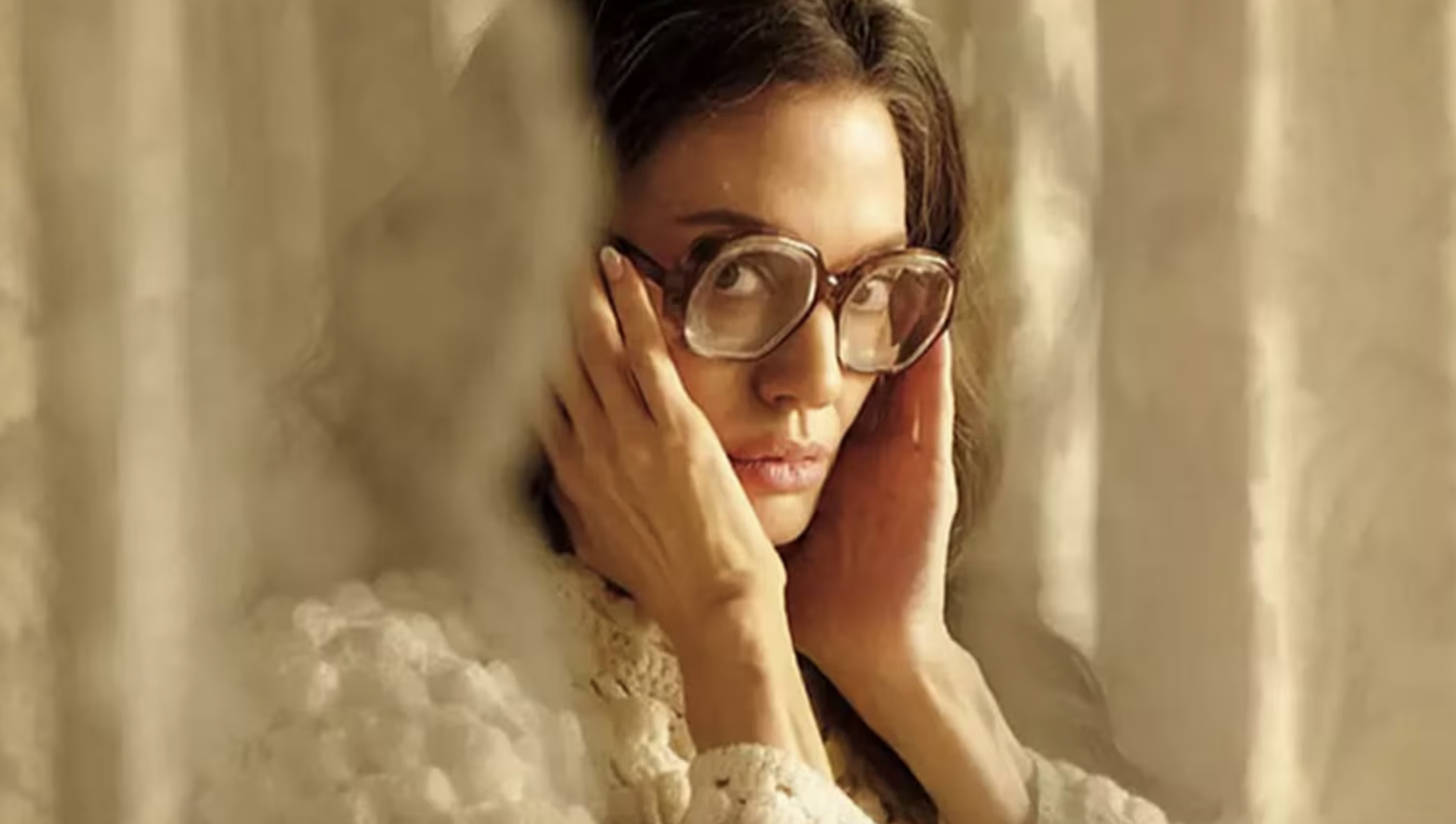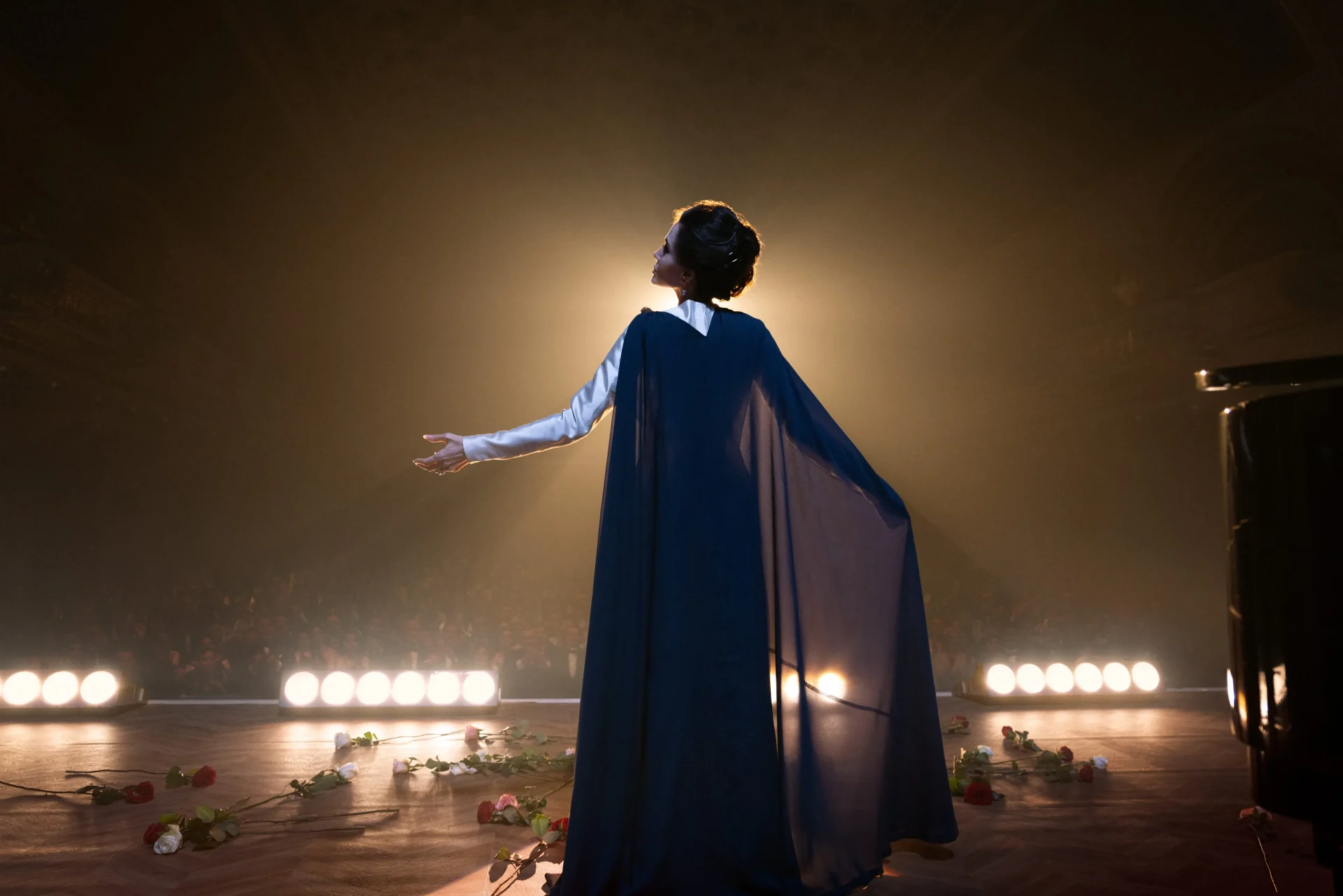“Maria” serves as the third entry in the unofficial trilogy from director Pablo Larraín about iconic 20th-century women during a specific period when they receded from public view. 2016’s “Jackie” examined the role Jackie Kennedy played in the aftermath of her husband’s assassination, and “Spencer” took a measured approach to the life of Diana Spencer before her official divorce from the future King Charles of England. To say that “Maria” is the least all-encompassing of this trilogy is not an insult, but rather a calculated choice on Larraín’s part. This isn’t the story about how the consciousness of a nation was thrust on the shoulders of a young woman, but rather a deconstruction of the artifice of celebrity.
“Maria” stars Angelina Jolie in the role of Maria Callas, the world-renowned opera singer who attained such fame that even those unfamiliar with the “bel canto” technique could recognize what an incredible range she had. Although this year has seen an overabundance of musician biopics (including the bland “Bob Marley: One Love” and the disastrous “Back to Black”), “Maria” doesn’t start with Callas as a child and follow every single defining moment of her career. Similar to both “Spencer” and “Jackie,” Larraín succeeds in narrowing the focus on a period in which Callas faced a reckoning about her legacy. Although there are a few flashbacks to earlier points in Callas’ career, the majority of “Maria” centers on the week before she died of a heart attack on September 16, 1977.
Jolie is perfectly suited for the role, and not just because of her voice, as she reportedly trained for over seven months to learn opera. Her casting is effective because Jolie has her own experience being in the public spotlight, as her personal affairs have been relentlessly covered by tabloid outlets since the end of the 1990s. It is easy to forget that Jolie started off her career with an Academy Award win for her moving performance in “Girl, Interrupted,” as her most high-profile projects have mostly been commercial genre films like “Mr. & Mrs. Smith” and “Wanted.” “Maria” certainly seems like a bid by Jolie to take a stab at serious acting once more, which is befitting for a film about a beloved icon trying to prove to the world that she is still worthy of its admiration.

Jolie’s performance is certainly idiosyncratic, but that is once more a decision that differentiates “Maria” from both “Jackie” and “Spencer.” While the First Lady of the United States and a royal Princess were required to maintain a certain level of restraint within their public appearances, Callas was allowed (and even encouraged) to be unabashed in the moments leading up to her shows. While many of her supporters may have claimed to respect her, “Maria” shows that Callas was also shackled by the enormity of so much praise; the film’s central thesis is that Callas was always performing, even when she was ostensibly being herself.
Also Read: Pablo Larraín’s Top 10 Favourite Films of All Time
“Maria” does not sanitize Callas’ story, as it is keen to note that she attained enormous wealth during a period in which global class divisions were growing even more radical. However, there’s a profound emptiness to the way in which cinematographer Edward Lachman frames the shots of Jolie standing within empty buildings, opera houses, and streetways. How could someone adored by generations feel so isolated, and how could she die alone with no one to curb her path of self-destruction? “Maria” doesn’t seem interested in answering the question definitively, but it does give some insights on the price of adoration. Callas learns that the price of being beloved is that she isn’t necessarily regarded for her individuality, as her voice has become an object of value for those who don’t care about the hard work taken to hone it.
Populating the film with supporting characters was perhaps a risk for a film that is so narrow within its time frame, but “Maria” does take the time to establish Callas’ relationship with the butler, Feruccio (Pierfrancesco Favino), and her housekeeper, Bruna (Alba Rohrwacher). These roles aren’t fleshed out beyond a few scant references to their other responsibilities, but the few moments in which Callas inquires about their families are quite moving. Favino in particular had a few standout moments in the third act, as Ferrucio’s obligations to remain proper clash with his desire to help Maria in what is clearly a crisis in the making.

If there’s a real misstep in the broader ensemble it’s Kodi Smit-McPhee in the role of Mandrax, a filmmaker tasked with interviewing Callas. Beyond the fact that it’s a thankless role (and quite derivative of a similar part played by Billy Crudup in “Jackie”), Smit-McPhee seems inserted to show the barrier that Callas put up to the press, which is already underlined by the film in more subtle ways. Smit-McPhee is by no means bad in the role, but it does seem odd that the charismatic young “The Power of the Dog” co-star is cast as a haughty, arrogant journalist whose sole purpose seems to be underlining exposition. The same could be said of Caspar Phillipson’s strange appearance as President John F. Kennedy, a casting choice made even more strange because he also played the same role in both “Jackie” and the controversial 2022 biopic “Blonde.”
The framing device of “Maria” may seem a tad conventional for those expecting more radical conceits from Larraín, as it is centered around three different “acts” in Callas’ story that adhere to the film that Mandrax is making. While the 124-minute running time may leave a little too much to breathe at points, “Maria” benefits from the fact that it is just gorgeous to look at; Lachman, who also shot the Todd Haynes films “Far From Heaven” and “Carol,” makes it even more absurd that a majority of viewers will stream “Maria” on Netflix, and not see it in theaters.
“Maria” is quiet, contemplative, and at times excruciating because the ending is predetermined. It’s not necessarily saying something new about the celebrity experience, but the efforts taken by filmmakers like Larraín to examine the intersection between gender, fame, and wealth in the 20th century should not go unnoticed. “Maria” argues that Callas herself deserved better than what she got, and hopefully should lead to a greater appreciation of her legacy.




![Escape from Pretoria [2020] Review – A Relentlessly Engaging Jailbreak Thriller](http://www.highonfilms.com/wp-content/uploads/2020/04/Escape-from-Pretoria-2020-768x512.jpg)
![Lapsis [2020]: ‘Fantasia’ Review – An intelligent satire on Corporate Greed & the didactic allure of Capitalism](http://www.highonfilms.com/wp-content/uploads/2020/08/Lapsis_2-768x320.jpg)
![22 July [2018] Review: Strong Start Ruined By A Tedious Middle Portion](http://www.highonfilms.com/wp-content/uploads/2018/10/22-july-768x432.jpg)

